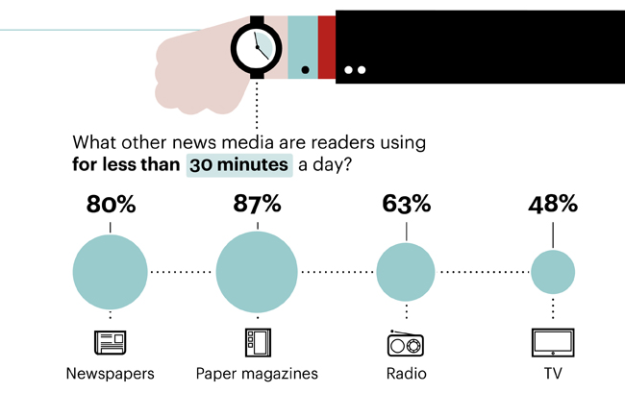
A new study confirms some interesting things about the way we now consume news. Performed by News Republic, a news aggregator (or news syndicator, as it likes to be called), the survey indicates that we’re all consuming more news than ever before, mostly on tablets and smartphones, but we’re spending less time reading that news. According to the survey, less than half of smartphone and tablet users read news for more than 30 minutes a day. Though we’re checking sources less, we value accuracy more. Sadly, news reading is also a sausage fest. Male news junkies made up 75 percent of all readers.

The results of the survey can be seen in the infographic to the right (click to enlarge it). We spoke with News Republic CEO Gilles Raymond, who also confirmed that 60 percent of readers use several apps to check their news. And, oddly, though the speed of our news consumption continues to increase on smartphones, people are spending more time reading on tablets than they did a year ago.
Keep in mind, this survey is performed by an app company that specializes in delivering large quantities of news, and the 8,000 people surveyed are fans of news aggregation.
News Republic is one of the better news aggregation apps out there. Its newest edition for iPhone and iPad has an offline mode you can enable, which auto-downloads the latest stories in whatever topics you like (there are about 10 million topics available to search through). News Republic is also available on Android phones, Android tablets, Windows 8, and Google TV.


